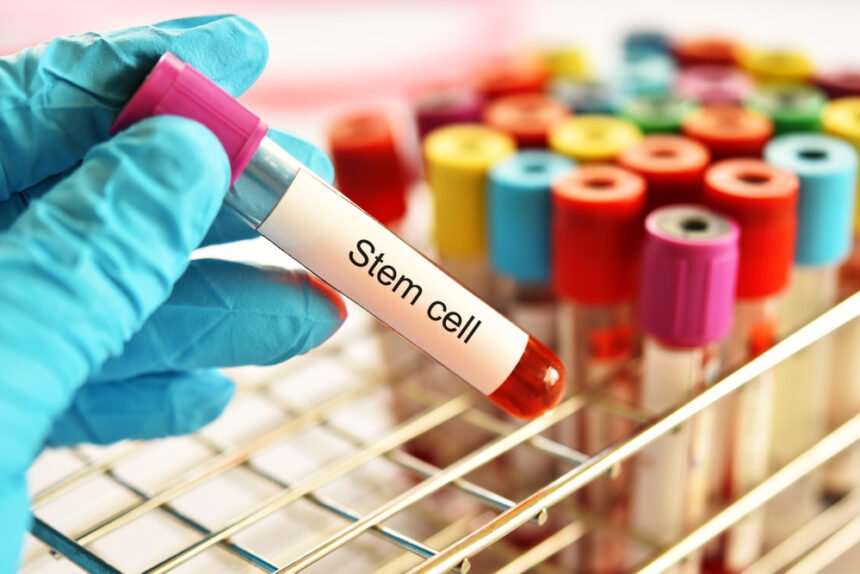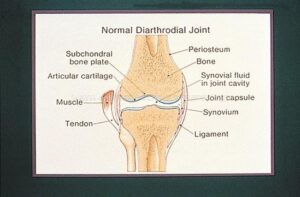For years, stem cell research has been heralded as an exciting frontier for healthcare – and with good reason. Hope is on the horizon for the treatment and even cure of our most devastating diseases.
First of all, what are stem cells and how do therapies work today? Simply put, they are the raw materials of the body – cells produced in the bone marrow that can either self-replicate, or change themselves into a variety of other cells. This means they have the potential to repair cellular damage anywhere in the body – and that is what makes them so exciting.
Before we shoot for the stars, we have to lay the groundwork. Doctors like Professor Persis Amrolia at Great Ormond Street Hospital in London have been leading pioneering research into the immunology surrounding bone marrow transplants for years. With this research, these operations are becoming safer and more successful. It’s only with foundations like this that we can develop stem cell therapies that fulfil their promise as a miracle cure.
Today, stem cell transplants are mostly used to treat cancer, specifically leukemia, and to repair the bone marrow, but the possibilities extend so much further. Here are some of the afflictions we might one day defeat.
Parkinson’s
A neurological disease that affects the dopamine-producing cells in the brain. The most well-known symptoms are uncontrollable tremors, but as it progresses can affect speech and even bring on dementia.
The charity Parkinson’s UK is buoyed by the fact that scientists have been able to successfully turn stem cells into these dopamine nerve cells. This means they can study them properly, but it also gives hope that one day they could be transplanted and replace damaged cells in the brain.
Heart Disease
This is the leading cause of death for men in the UK, according to the Office for National Statistics. It is a catch all term for many kinds of things that weaken the heart muscle, and causes well-known deadly symptoms like heart attack, heart failure and cardiac arrest.
In 2012, Dr. Eduardo Marbán of the Cedars-Sinai Heart Institute released results of a clinical trial in which his team treated 17 heart attack patients with an infusion of stem cells taken from their own hearts, which eventually shrunk the scar tissue on their hearts by half.
Currently stem cells are not used in heart treatments, only clinical trials, as there is still a danger of the infusions interrupting the electrical signals that control rhythm. But the signs – they are promising.
Cancer
This is one of the only diseases that is currently treated with stem cells (another being sickle cell disease), specifically blood cancers like leukemia and multiple myeloma. Bone marrow transplants allow the stem cells to restore the health of marrow in the patient, which can then rebuild their immune system, while donated white blood cells attack the cancer directly.
Other forms of cancer are trickier as the transplant doesn’t yet work against them directly. However, when combined with radiotherapy or chemotherapy, stem cell transplants can make treatment more effective. Researchers in Germany found that treating women with breast cancer using high-dose chemotherapy and stem cell transplants improved outcomes by up to 16% over using conventional chemotherapy that include no stem cell transplants.
Alzheimer’s
Alzheimer’s disease is the leading cause of death for women in the UK. The most common form of dementia, it deteriorates brain function, leading to memory loss and lower cognitive abilities. The disease also causes a build up of ‘plaque’ on the brain from a protein called amyloid, further hampering it.
Stem cell research for Alzheimer’s is still in its early days, and hasn’t yet moved to human trials. However, trials with mice are very promising. Professor Eva Feldman at the University of Michigan placed human neural stem cells into the hippocampus of mice’s brains. The results showed better short and long-term memory, spatial awareness, and a decrease in plaque.
Suicide
We know, it’s not technically a disease, but in the 2000s suicide and accidental poisoning overtook heart disease to become the biggest cause of death in young people (aged 20 – 49) in the UK. There is a glimmer of hope that the neurological side of mental illnesses – such as depression, bipolar disorder and schizophrenia – may someday be treatable with stem cells.
Dr. Kristen Brennand, at the Brain & Behaviour Research Foundation in the US, is researching how to use stem cells to prevent patients at high risk of psychiatric illnesses before they start showing symptoms. The cure for other causes of mental illness, such as loneliness, abuse and poverty is, however, a non-medical task for us to tackle as a society.
—
So, we still have a long way to go before stem cells can ‘cure’ these diseases directly. But their innate ability to stimulate immune systems means that other treatments are more likely to succeed in the meantime. For now, we can only support our scientists and doctors for all the amazing things they have discovered and have yet to discover.








